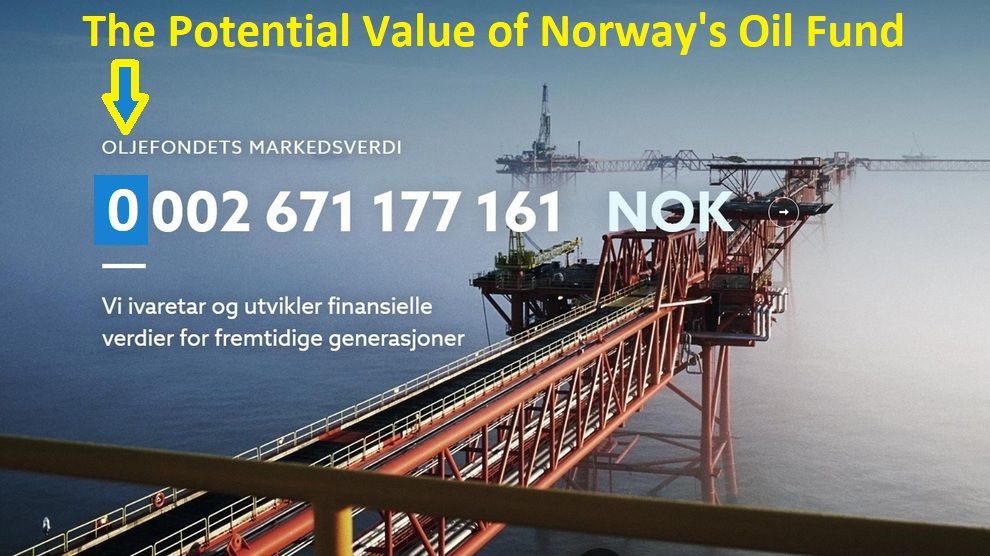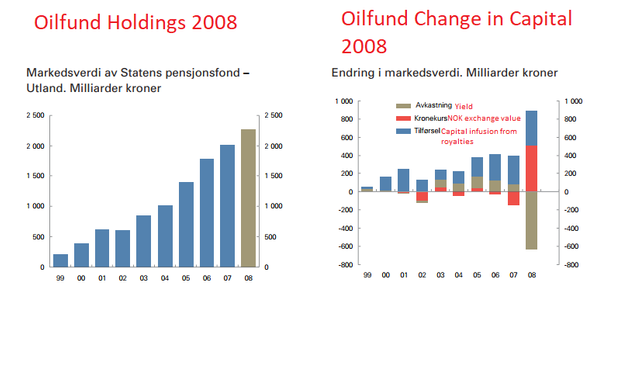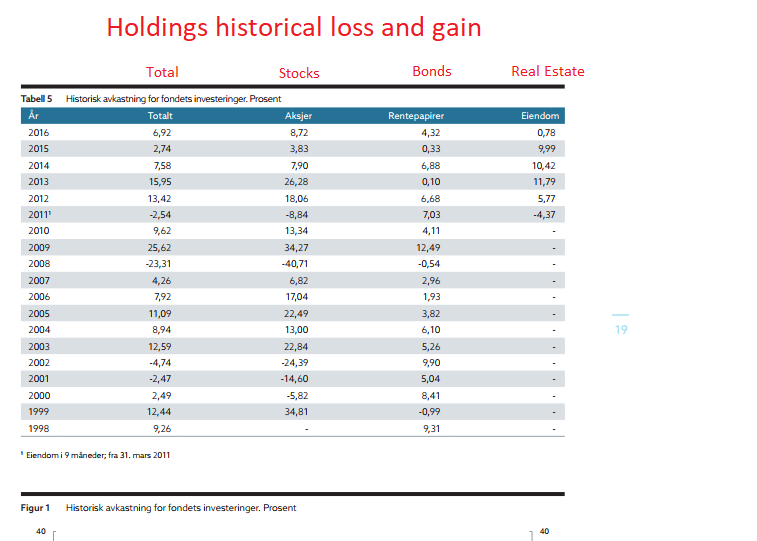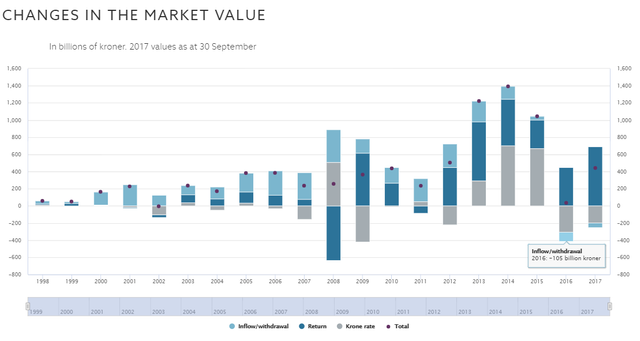The coming failure of one of the world biggest Sovereign Wealth Funds

Over the last week, I have delved into the numbers surrounding the Norwegian Wealth Fund. Or The Oil Fund as its called.
Norway's Oil Fund got established in 1990 to funnel oil royalties from the government-owned Statoil. Since then the oil fund has been used to invest all over the world to try to create a return for the Norwegian government. The government continues to tell the Norwegian people it is for them, but I don't think as a Norwegian citizen I would ever see a penny or krone of that fund.
I did a report on the Norwegian Oil Fund for a couple of days ago and you can watch it here:
Norway's Sovereign Wealth Fund owns more the 1% of all global companies/corporations.
As CEO Yngve Slyngstad says,
“60 to 70 percent in equities, imagine it was 60 to 80 or 90 percent, the whole thing is that this fund is actually to a large extent now a public equity fund. We don’t think about this as two separate asset classes that have their distinct dynamics, the real risk of the fund is in the equity market.”
The Oil Fund back in 2008 lost an average of 23% and a whopping -40.1% on their equity investments. Back then oil price was $130 a barrel. Now the price is $55, that is 57.7% of what it was in 2008. In 2008 they infused a record $384B NOK from oil royalties income. The equities allocation was only 40% and it still hurt badly.


In 2016 Norges Bank the Norwegian Central bank set a goal of accumulating 75% Equities in the fund. In my point of view, this is a way for the Central Bank to avoid buying stocks directly and help the equities bubble not to pop in many countries. It is not only Norway that is doing this. Also, Switzerland's SNB has been buying big amounts of US stocks. This again shows the interconnectedness of cooperation between central banks.
Now in 2017, The Oil Fund holds over 65% in equities. With a global stock market crash looming we see a potential threat of not losing -40.1% but even as bad as -60%. With the equities position being 65.9% instead of 40% and oil royalties being low from low oil prices the potential hit on the oil fund can become critical.
The belief that the bond portfolio will cover the hit is an old strategy as world major equity funds have this strategy. As stock markets crash bond go up. This is an okay thought, but when we are in a massive bond bubble as well this theory of holding over 95% of your assets in bonds and stocks are so catastrophic combined with the low oil price and during a crash, the oil price might even collapse to half of what it is. The fund managers are at sleep and believing their strategies will work till eternity. On top of that, we also have a currency bubble. Mass amounts of currency are slushing around in the global economy while there is a deflationary threat coming from retirees wanting to withdraw their big equity and bond portfolios. Maybe they believe that they can buy up all the assets of retiring boomers, but what will happen when the government gets desperate and need more income from their deficit spending?
With the Norwegian government running a deficit and debt is increasing there is a high risk of continuation of supporting their deficit with income from the oil fund. Norways government expenditure to GDP has passed 51% and if you take away oil and gas revenue Norway has a government expenditure to GDP that is 71%. That's by far the highest in the world other than Venezuela and communist governments.
In 2016 the government withdrew -105B NOK and in 2017 so far -50B that is another strike against the oil fund. Hard times are about to come and its already looking bad for the Oil Funds future.

Hey ,
Nice work sir
Living in the US, I don't get a good perspective of what is happening in Norway and the risks. I very much appreciate you pointing out this local issue that is actually been connected globally through its stocks/bonds purchases. Governments should never be investors in the market. They have shown over and over again to be terrible allocators of capital. In Norway's case, they hoped to use this fund as a piggy bank and it will not end well.
The only good news is I expect a global economic recovery through 2019 before the suffering begins in a 2020 global recession.
Thanks for the feedback!!
Crazy complicated but a good breakdown!
nice
I've heard a lot of complaining here in Alberta that our government should have charged larger oil royalties and established a fund like Norway did. While Norway's government probably does see the money as their own rather then the people's money at least they seem to have received a good price on their oil from the oil companies. Alberta pretty much undercharged for the oil and then wasted the money they collected.
It will be interesting to see how this all pans out in the next few years. With pension funds in Canada and the US highly underfunded and funds like Norway's highly overexposed to equities I am sure there will be plenty of wailing and gnashing of teeth. When the bubble finally bursts.